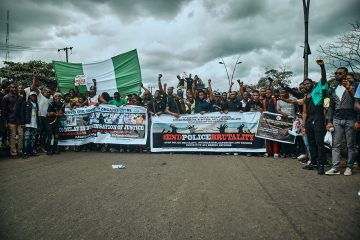
Politics in Nigeria After Social Media
A Pew Research Centre survey showed that citizens of 19 advanced economies consider social media simultaneously constructive and destructive in political life. A majority of citizens believe that social media has had a positive impact on democracy. What about frontier economies? How has social media affected politics and political interaction in African countries with rapid population growth, increasing life expectancy, and widespread poverty? Consider Nigeria. In mid-2017, Nigeria was the most populous nation on the continent. By 2050, Nigeria will be the third most populous nation in the world. This large population has increasingly adopted social media. There were approximately 33 million users in 2022, up from 18 million in 2017. Young people aged 18 to 34 make up the …
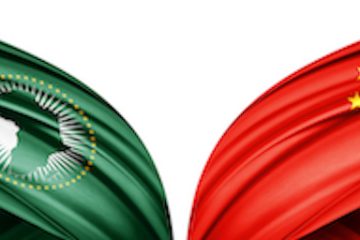
Bridging State Responsibility and Opportunities as African Countries Join in the Digital Silk Road
In 2015 China launched the Digital Silk Road (DSR hereafter). The DSR is an essential part of the One Belt, One Road (BRI) strategy with significant domestic and foreign policy objectives. China has made enormous investments that have allowed it to achieve rapid technological advancement and economic growth. As of 2021, Chinese firms were three of the world’s largest technology companies by revenue. According to the World Intellectual Property Organisation (WIPO), in 2020 China reported 1.5 million patent applications, 2.5 times more than the second leading country, the United States. The DSR is part of China’s plan to spread its technical and proprietary knowledge by building telecommunications, data, and financial infrastructure in countries participating in the BRI. The Nigerian digital …
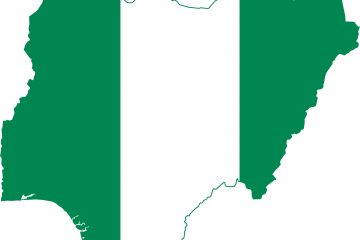
The Need for Restructuring Nigeria’s Political System
Nigeria is Africa’s biggest economy and the most populous black nation on earth. Yet, regional economic inequality and the lopsidedness of Nigeria’s political system have led to a series of protracted conflicts. The country is currently embroiled in crises similar to the tumultuous time after independence in 1960, when regional and ethnic tensions erupted in a vicious power struggle. Back then, following a coup against the northern-led government in January 1966, thousands of Igbos living in the northern region were forced to flee to their homeland following the outbreak ethnic clashes. In 1967, Odumegwu Ojukwu, an Igbo military officer, proclaimed the independence of Republic of Biafra, leading to Nigeria’s first bloody civil war, which ended in 1970. Over forty years …
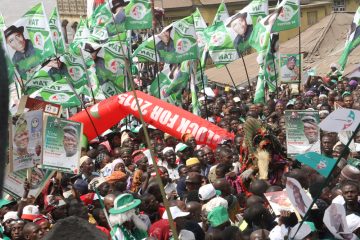
Will 2019 Witness a Protest Vote against Nigeria’s Ruling Party?
The 2019 presidential election will mark a defining moment in Nigeria’s hectic political history. Tensions are rising ahead of the elections in February when the polls will mark the first contest after an opposition leader defeated an incumbent president since the return to civilian rule in 1999. In the 2015 election, the All Progressives Congress (APC) defeated then-President Goodluck Jonathan’s People’s Democratic Party (PDP). Today, APC faces the prospect of electoral defeat just four years after it came into power. Neither President Muhammadu Buhari, nor any of the likely main opposition candidates, has a clear support base. In the lead-up to Nigerians heading to the polls in early 2019, the deteriorating security situation of Africa’s largest economy is particularly worrying. …
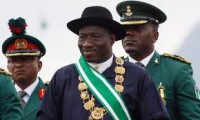
Deepening Democracy: In Nigeria, improving government accountability means paying politicians less
While the Global Commission report on Deepening Democracy provides insightful recommendations on strategies for improving electoral integrity, we must remember that elections are just one step in the democratic process. Certain precursors need to be made right in order to make the report’s recommended strategies achievable. Having lived in Nigeria and experienced the democratic process there, I am of the opinion that one vital measure needed to strengthen its nascent democracy is to drastically reduce the excessive financial incentives that accompany political positions. The quest for political leadership must be guided by a passion to lead and make changes. Sadly, these are noble incentives overshadowed by the “what is in for me?” mentality of personal gratification that has eaten deep into the fabric of the country’s political space.
Federalism in Nigeria: Contextualising Boko Haram and the Fuel Subsidy
When Boko Haram killed nearly 70 civilians over the Christmas holidays, many observers in the Western media were quick to chalk it up to wanton Islamic extremism. The attacks, it was concluded, reflected global jihadist activity. Emphasis was placed on the group’s links to al Qaeda. This narrative is shortsighted. For one, it ignores Christian retaliation just days later, including the bombing of a madrasa that injured seven. More broadly, it decontextualizes the violence. Nearly 500 Nigerians were killed in the northeast in 2011 due to sectarian conflict. Suicide attacks, car bombings, and assassinations-by-machete have been documented throughout the country, Africa’s most populous and the linchpin of Western engagement with the continent. Such killings are not new to Nigeria: religious strife has been a constant for decades, …









